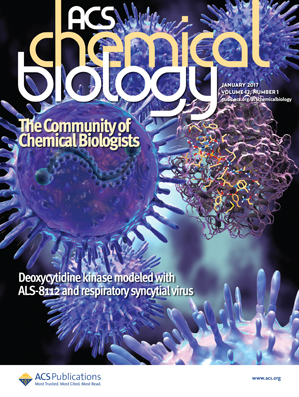Beyond the business case: Universally designing the workplace for neurodiversity and inclusion
IF 3.5
2区 生物学
Q2 BIOCHEMISTRY & MOLECULAR BIOLOGY
引用次数: 1
Abstract
Given that 15 – 20% of the world ’ s population is neurodiverse (e.g., has ADHD, dyslexia, and/or autism; DCEG Staff, 2022), understanding how to better include these individuals in the workplace is both a social justice and a strategic imperative for organizations. Lefevre-Levy et al. ’ s (2023) discussion of the latter justification provides ample evidence as to why neurodiversity can benefit individual outcomes and organizational performance. We discuss the limitations of using organizational performance gains as a primary justification for including neurodiverse people in the workplace, which we refer to as the “ business case. ” Recognizing that the business case can be a useful tool of persuasion to bring hesitant decision makers to the table, we review research on the boundary conditions and limitations of the business case. We caution that relying exclu-sively on the business case can have three important drawbacks: (a) neurodiversity may not always result in performance gains, making the business case a risky wager; (b) neurodiverse people may be dissuaded from joining organizations that view their inclusion primarily as a business imperative; and (c) characterizing neurodiverse people as especially capable or superpowered could detract from inclusion goals by othering and commodifying them. We discuss these issues before presenting what we perceive to be a promising complement to the business case for neurodiversity. Specifically, we draw from principles of universally accessible design (Story, 2001) to suggest that making workplaces accessible and welcoming to neurodiverse people can benefit neurodiverse and non-neurodiverse employees alike.超越商业案例:为神经多样性和包容性普遍设计工作场所
鉴于世界上15-20%的人口具有神经多样性(例如,患有多动症、阅读障碍和/或自闭症;DCEG Staff,2022),了解如何更好地将这些人纳入工作场所既是社会正义,也是组织的战略当务之急。Lefevre-Levy等人(2023)对后一种理由的讨论为神经多样性为什么有利于个人结果和组织绩效提供了充分的证据。我们讨论了将组织绩效收益作为将神经多样性人群纳入工作场所的主要理由的局限性,我们称之为“商业案例”。认识到商业案例可以成为说服犹豫不决的决策者的有用工具,我们回顾了对商业案例的边界条件和局限性的研究。我们警告说,过分依赖商业案例可能有三个重要的缺点:(a)神经多样性可能并不总是能带来绩效收益,使商业案例成为一种冒险的赌注;(b) 神经多样性人群可能会被劝阻不要加入那些将他们的融入主要视为商业当务之急的组织;以及(c)将神经多样性人群定性为特别有能力或有超能力的人可能会通过将他们其他化和商品化来偏离包容性目标。在介绍我们认为对神经多样性商业案例有希望的补充之前,我们讨论了这些问题。具体而言,我们从普遍可访问设计的原则(Story,2001)中得出结论,让工作场所变得可访问并欢迎神经多样性人群,可以让神经多样性和非神经多样性员工都受益。
本文章由计算机程序翻译,如有差异,请以英文原文为准。
求助全文
约1分钟内获得全文
求助全文
来源期刊

ACS Chemical Biology
生物-生化与分子生物学
CiteScore
7.50
自引率
5.00%
发文量
353
审稿时长
3.3 months
期刊介绍:
ACS Chemical Biology provides an international forum for the rapid communication of research that broadly embraces the interface between chemistry and biology.
The journal also serves as a forum to facilitate the communication between biologists and chemists that will translate into new research opportunities and discoveries. Results will be published in which molecular reasoning has been used to probe questions through in vitro investigations, cell biological methods, or organismic studies.
We welcome mechanistic studies on proteins, nucleic acids, sugars, lipids, and nonbiological polymers. The journal serves a large scientific community, exploring cellular function from both chemical and biological perspectives. It is understood that submitted work is based upon original results and has not been published previously.
 求助内容:
求助内容: 应助结果提醒方式:
应助结果提醒方式:


